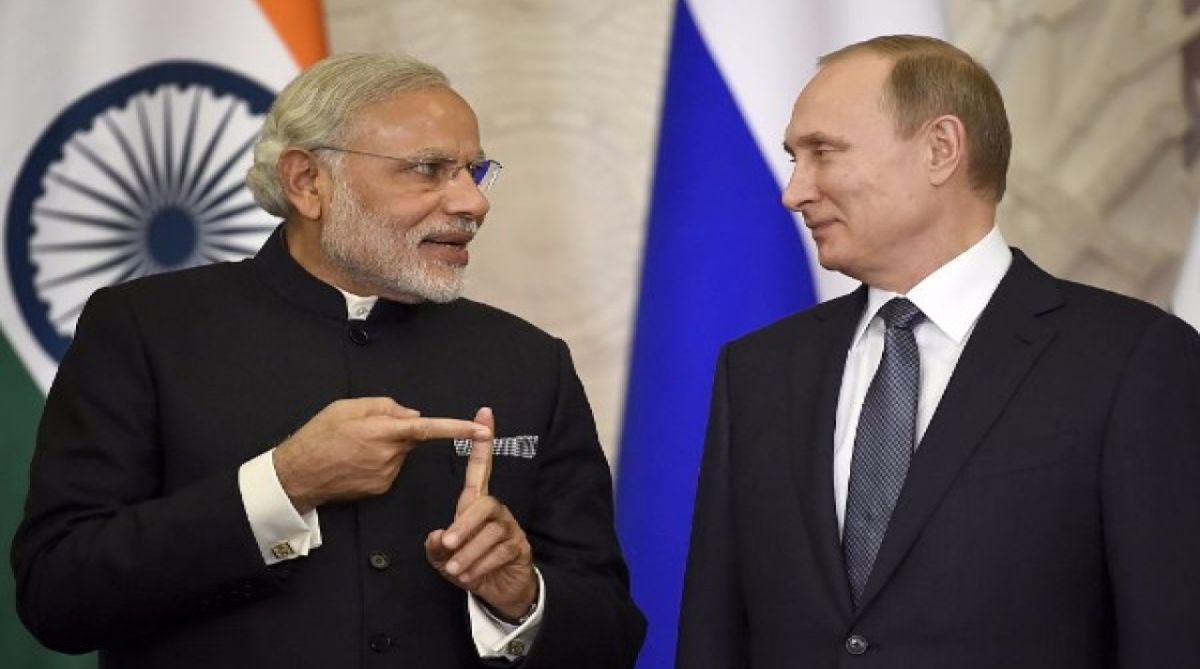India will make a “sovereign decision” on Russian defence purchases, which are facing possible US sanctions, according to Russia’s Foreign Minister Sergey Lavrov.
“I understand that India will be taking sovereign decision (on) how to proceed and what kind of weapons it needs,” he said at a news conference in New York on Friday.
Advertisement
Asked by a reporter if the proposed $8.5 billion defence deal with Russia, which includes a missile defence system, that was expected to be signed next month during Russian President Vladimir Putin’s visit to India was on hold, Lavrov said: “I haven’t heard anything about the timing, about postponement, about putting anything on hold.”
Russian President Vladimir Putin will visit India on 4-5 October for the 19th India-Russia annual bilateral summit, it was officially announced here on Friday.
In response to another question if Russia would be adding “checks and balances” to its defence deals with India in the light of the controversies over the purchase of Rafale jets from France, Lavrov said he was not aware of the allegations of corruption and added, “We participated in the deal for the delivery of that (but) we did not get it.”
Six manufacturers, including Mikoyan MiG-35, competed for the Medium Multi-Role Combat Aircraft (MMRCA) tender. The MiG-35 was eliminated in an initial round and Dassault’s Rafale emerged the winner for the contract.
The Countering America’s Adversaries Through Sanctions Act (CAATSA) passed last year by the US Congress imposes sanctions on some Russian companies as well as on their customers and this could impact India’s defence deals with Russia.
India will need exemptions from CAATSA to buy the S-400 Triumf missile defence system as well as frigates and helicopters.
While India raised the issue during the recent 2+2 Strategic Dialogue between the Defence and External Affairs Ministers of India and the US Secretaries of Defence and State in New Delhi, a categorical exemption is yet to be made.
When the Congress tried earlier this year to prevent President Donald Trump’s administration from granting exemptions, Defence Secretary James Mattis made an appeal citing India to allow the administration to exempt deals and finally prevailed. So the Trump administration continues to have the power to exempt India.
Putin is scheduled to hold the summit with Prime Minister Narendra Modi on 5 October. He will also meet President Ram Nath Kovind and other Indian leaders.
A number of agreements are expected to be signed between the two countries following the summit.
The two countries are also looking at the possibility of inking the much-anticipated S-400 Triumph missile defence system deal which could attract punitive action by the US under the CAATSA.
The agenda of talks between Modi and Putin includes key aspects of special privileged partnership between their two countries.
The two leaders are expected to review global developments, including the situation in Afghanistan and Syria, and implications of the US decision to pull out of the Iranian nuclear deal.
They will also take stock of bilateral ties especially against the backdrop of the growing impression that Russia was reaching out to Pakistan, much to the discomfort of India.
Apart from participating in the summit, the two leaders will also attend a meeting of the India-Russia business forum.
The last India-Russia summit was held in June 2017 when Modi visited St Petersburg.
(With agency inputs)











